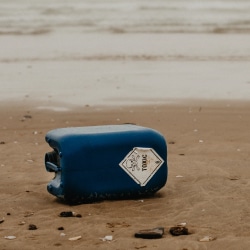Ocean Pollution and Human Health

A recent study published by Boston College in the US provides an assessment of ocean pollution on human health. It is often reported that ocean pollution is worsening but to what extent does that impact our wellbeing as well as marine life?
What constitutes Ocean Pollution?
Ocean pollution is a complex mix of toxic metals, plastics, chemicals, petroleum, urban and industrial waste, pesticides, fertilisers, pharmaceutical chemicals, agricultural runoff and sewage. Over 80% arises from land based sources and ends up in the oceans via rivers, run-off, airborne particles washed in to the ocean by rain, and direct dumping such as waste water treatment. The greatest concentration of pollution is around the coastline of low and middle income countries. However pollution knows no boundaries, and is found in the open ocean beyond any national waters, on the shores of remote islands, and in the deep ocean trenches.
There are many ways these pollutants can affect us but here are a few…
Plastic Waste
Plastic waste is the most visible form of pollution. Over 10 million tonnes enter the seas every year. The majority is broken down in to micro particles. However, larger pieces can float for years and gather together to create mass garbage floats. Plastics contain many toxic chemicals, such as carcinogens and neurotoxins. These chemicals then enter our food chain via the fish and shellfish that we eat. There is a debate about how harmful they are to us.
Mercury
Mercury is widespread in the oceans. It comes from coal being burnt in homes and within heavy industry. When coal is burnt mercury vaporises into the atmosphere. When it rains, these mercury particles are washed in to the sea. The mercury is consumed by the fish. It is most concentrated within predatory fish such as tuna as it accumulates at the top end of the food chain. Mercury is bad for expectant mothers as it can be harmful to the brain development of the foetus, and causes a higher risk of heart disease and dementia in adults.
Coastal pollution
Industrial waste, run-off, pesticides and sewage increase the frequency of harmful algae. The toxins in the algae are consumed by fish. We then eat the fish. The toxins can contribute to dementia, amnesia, paralysis and asthma.
Solutions Required
Boston College’s report states that despite the harmful levels of ocean pollution there is good news. As with all pollution, the amount and rate of ocean pollution could be controlled. However there are a number of key steps that need to be taken. These are all easier said than done, but many organisations and charities are working towards these. In addition, we all individually need to contribute as best we can, however we can.
- We need to have a global ban on single use plastic and offer better recycling. This stops plastic pollution at the source not just in the ocean but also landfill.
- Governments need to legislate against other forms of pollution such as air pollution. This is a cost saving exercise in the long run as healthcare costs should reduce with a reduction in air pollution.
- We need to control coastal pollution, by cleaning our coastal waters. An increase in tourism and improved health should occur in coastal areas where there are cleaner seas.
- Cleaner energy is required, so that we can reduce fossil fuel consumption.
- Alternatives to fossil fuel based plastics are required.
- A reduction of industrial and agricultural discharge needs to be carried out.
- We need to expand marine protected areas.



